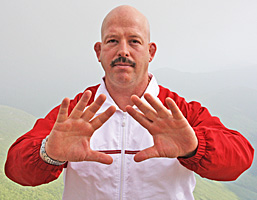When it comes to goal-setting, the standard proponents of it tell you that you MUST be crystal clear about a specific outcome you desire, otherwise nothing good will be accomplished.
You are told that you must choose exactly what you want, down to the nitty-gritty details. And of course, you must have a definite time stamp on what you choose to create.
This is all well and good… and yes, it does work. But, it is only ONE way your brain and body work to achieve something.
The other way is not spoken or written about much, yet it is just as valid, if not more so, than the first method. In fact, everyone I have ever questioned has unconsciously used it to accomplish something big in their lives. The accomplishment might have taken several years to pull off, but this was not perceived as an obstacle.
Not only did the “goal” take years of intense focus to be accomplished, but it wasn’t crystal clear from the beginning. On top of that, there was no definite date drawn up in advance for when the goal must be finished. Here’s the kicker: it was never written down.
Stange… and true.
I recall back in my college days, visiting with a woman with aspirations to get into medical school to become a doctor. What kind of doctor? She didn’t know yet.
I can still see myself telling her that she needed to get clear about her goal, put it in writing and read it every day.
She looked at me and said, “I don’t need to write down my goal because I already know what it is.”
Over the course of the next five years, she worked a number of jobs while still holding onto a mental image of her unwritten goal.
Halfway through her first semester of medical school, she began to have serious doubts as to whether or not she was “cut out for this.” In spite of her doubts, she continued onward and five years later, became an M.D.
Again, I am not saying that you shouldn’t write out your goals, be detailed about them, and so on. What I am saying is that there are two types of goals. There are predetermined goals and there are process-oriented goals that are somewhat vague.
Some goals are best attained when you are super-specific. Then again, there are other goals that are made much harder to accomplish if you get too specific.
A professional boxer can set a goal to knock his opponent out with a left hook at 1:36 of the first round. Is it going to happen that way? Maybe, maybe not. I’m betting NOT.
If it doesn’t happen the way the boxer planned it, which is usually the case, what’s he to do?
A golfer can set a specific goal of hitting a hole-in-one in a game on September 19, 2022, or having a final score of 68 on December 5, 2021.
These are specific goals, but are they helpful?
Most golfers I have spoken with have said these type of specifics would create anxiety and screw up their game. Yet, goals that are somewhat vague, goals that are much more process-oriented, such as having specific mental cues about your swing, will cause them to calm down and play much better.
As a coach, my job is not to help people set clear, specific goals that “scare” them.
My job is to help people accomplish their goals, in part, by figuring out what type of goal-achiever they are, and in what contexts.
You might think that Psycho-Cybernetics only teaches you to hit specific goals that you programmed into your subconscious mind.
But what about the “unknown” goals that Dr. Maltz wrote about?
Huh? Unknown goals?
That’s correct.
It’s in Chapter Two. It’s worth re-reading.
In the interim, start to entertain the idea that everything you’ve been told about the crystal clear specifics about goal setting, and how it has to be done a specific way, ain’t necessarily so.
Matt Furey
P.S. Zero Resistance Living is the advanced course in Psycho-Cybernetics. I highly recommend it because it teaches you how to focus on “one goal at a time – one day at a time” before you start leaping into long-term goals in every area of your life. Prove to yourself you can make something happen today, in the here and now.

